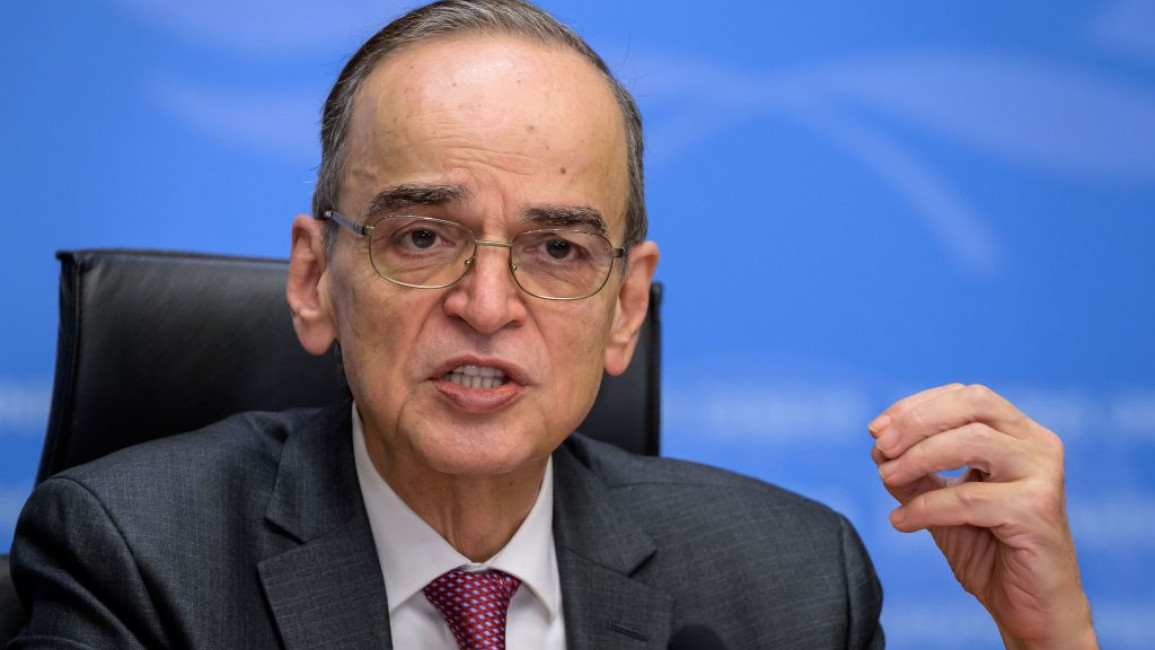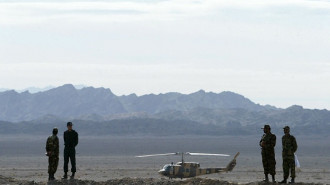Syria opposition coalition chooses Hadi Al-Bahra as leader amid 'infighting'
The embattled Syrian National Coalition of Revolutionary and Opposition Forces (SNC) has controversially elected a new leader amid reports of bitter infighting between its members.
Hadi Al-Bahra, who previously led the Syrian opposition umbrella group from 2014 until 2015, was chosen to succeed outgoing leader Salem Al-Meslet following a meeting of the general assembly of the SNC on Tuesday.
Al-Bahra, who was born in 1959, previously worked as a director of hospitals in Saudi Arabia and then headed an IT company in Syria.
At the beginning of the Syrian uprising against President Bashar Al-Assad, he used his technology expertise to help establish communications networks between Syrian activists and international media.
Haythem Rahmeh was elected for another term as the organisation’s secretary-general, while Abdul Majeed Barakat, Dima Moussa, and Abdul Hakim Bashar were elected as vice presidents.
The election was marked by a war of words between the coalition's members, with Nasr Al-Hariri, a former leader of the SNC, saying that Al-Bahra would be imposed by Ankara as the group’s leader.
Moaz Al-Khatib, another former leader of the SNC, even declared the "death" of the organisation in an angry tweet.
"I commiserate all Syrians on the death of the coalition which used to be opposition. There is a disgraceful threat to its members forcing them to vote for an imposed leadership," he posted on X, formerly known as Twitter, on Saturday.
The SNC has been plagued by infighting ever since its formation in the early years of the uprising against the Assad regime, which began in 2011. Different leaders in the group are often accused of working for the interests of various foreign powers.
The SNC is headquartered in Istanbul and there were unconfirmed reports that its leaders were summoned to Ankara by the Turkish government and told to choose Bahra.
The organisation today has little influence over events on the ground in Syria, with Bashar al-Assad retaking control of most of the country and rebel-held areas dominated by armed groups including the hardline Islamist Hayat Tahrir al-Sham.

![Palestinians mourned the victims of an Israeli strike on Deir al-Balah [Getty]](/sites/default/files/styles/image_684x385/public/2024-11/GettyImages-2182362043.jpg?h=199d8c1f&itok=xSHZFbmc)


![The law could be enforced against teachers without prior notice [Getty]](/sites/default/files/styles/image_684x385/public/2178740715.jpeg?h=a5f2f23a&itok=hnqrCS4x)
 Follow the Middle East's top stories in English at The New Arab on Google News
Follow the Middle East's top stories in English at The New Arab on Google News
![Fakhrizadeh [AFP] Fakhrizadeh [AFP]](/sites/default/files/styles/image_330x185/public/media/images/774C39F7-8F7A-4D67-B998-27D102FCB4A7.png?h=d1cb525d&itok=j9eGvunV)

